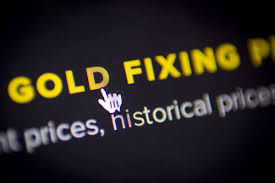
27 August 2015 – The European Commission has confirmed that it is investigating potential anti-competitive behavior by some of the world’s biggest banks in the trading of precious metals.
The Commission did not give any additional information about the case but it is thought to have been instigated by a similar investigation in the US. The Department of Justice is looking into 10 banks for allegedly manipulating the prices of precious metals such as gold and silver.
Besides D.C. and NYC, attorney review teams were established in London and Paris. Those review centers are now being expanded due to the EU’s investigatory launch.
The U.S. investigation, which is being run out of the San Francisco field office of the DoJ’s antitrust division, has led antitrust advisers – many of which were already representing banks in a number of other rate-fixing probes – to travel from the US to London and Paris and elsewhere to help respond to the parallel civil and criminal precious metals investigations.
According to our sources and the regulatory filings we have reviewed, the criminal investigation has been underway at the antitrust division since late 2014, and the U.S. Commodity Futures Trading Commission opened a parallel civil investigation in January. The enforcers are questioning whether the banks conspired to rig rates used to buy and sell precious metals, including gold, silver, platinum and palladium, around the world.
The investigation appears to have originated as part of the global foreign exchange rate-fixing probe, which is being carried out in eight jurisdictions around the world, including the US, UK, Hong Kong, Australia and Switzerland, according to multiple legal media reports.
Regulatory filings also suggest that foreign exchange rates and precious metals pricing was often carried out in the same division of banks. Swiss bank UBS said in a filing in March that reports of potential antitrust issues in the foreign exchange market prompted an internal review of that part of the company’s business, which also included precious metals and related products.
UBS is believed to be the leniency applicant in the precious metals probe. The company has won leniency from the DoJ in previous rate-fixing investigations in the financial industry.
Other banks allegedly under DoJ investigation include Barclays, Goldman Sachs, Credit Suisse, Deutsche Bahn, HSBC, Bank of Nova Scotia, JP Morgan and others. Many of those banks have been the target of private antitrust litigation over the alleged precious metals rate-fixing conspiracy.
In a filing in Februry, British banking giant HSBC reported that it received a request for information from the DoJ in November 2014 related to the its precious metals business. It also received a civil subpoena related to precious metals from the CFTC in January. In the filing the bank said:
“HSBC is cooperating with the US authorities in their respective investigations.”
Meanwhile, Goldman Sachs in a filing said generally that its physical commodities activities, including both precious and base metals, “subject us and/or the entities in which we invest to extensive and evolving federal, state and local energy, environmental, antitrust and other governmental laws and regulations worldwide”.
US courts are currently weighing litigation over silver, gold, platinum and palladium prices inspired by financial probes. Worldwide prices for the precious metals are set by a small cadre of London-based dealers during daily telephone conferences.
The latest, filed by a Florida jewellery maker in November, says HSBC, Goldman Sachs, German trader BASF and South Africa’s Standard Bank illegally shared data about platinum and palladium orders to influence the global benchmark price and reap profits on their own trades.
Two early lawsuits, meanwhile, claim the Bank of Nova Scotia, Deutsche Bank, HSBC, Barclays and Société Générale conspired to manipulate prices of gold, silver, or both during daily conference calls. The lawsuits include pages of data purportedly showing strange price activity resulting from collusive trading.
According to the Wall Street Journal, the CFTC raised gold price setting with the UK’s Financial Conduct Authority, or FCA, in 2013 because of concerns the process – in which the banks take part in daily price-setting auctions – could be open to abuse and conflicts of interest.
The FCA has fined Barclays $44 million for inadequate safeguards and disqualified one of its metals trader for artificially manipulating gold prices. Deutsche Bank has withdrawn from the gold-fixing process after being investigated by BaFin, Germany’s financial regulator.
According to recent stories, the FCA and BaFin have closed investigations of potential market manipulation by precious metal dealers, however.
The European Commission fined six financial institutions €1.7 billion euros in 2013 for manipulating Libor, the London interbank offered rate, and the Euro Interbank Offered Rate benchmarks.
Separate investigations are underway into alleged manipulation of the foreign exchange market.
The Commission did not give the names of the banks it is scrutinizing in the precious metals inquiry. HSBC has admitted to being contacted about its activities in the market and has said it will “cooperate” but that implications for the bank “could be significant”.
Barclays, JP Morgan Chase and Deutsche Bank are also reported to have been part of the investigation.
UBS has been granted immunity in EU investigations into Libor and the EU’s currency-rigging case. The bank said in May it had been granted immunity from criminal proceedings in the US investigation into precious metals.
It is a not a huge surprise that after Libor and the exchange rate cases authorities are looking at precious metals and other trading practices. We have seen there was tradition of contact between banks that could in some cases cross the line. The banks have to do a bit of homework and make sure their staff are back on the correct side.
The investigation is in a preliminary stage and there is no timetable for its completion. We hope to learn more at the U.S. – EU anti-competiton summit in D.C. next month.